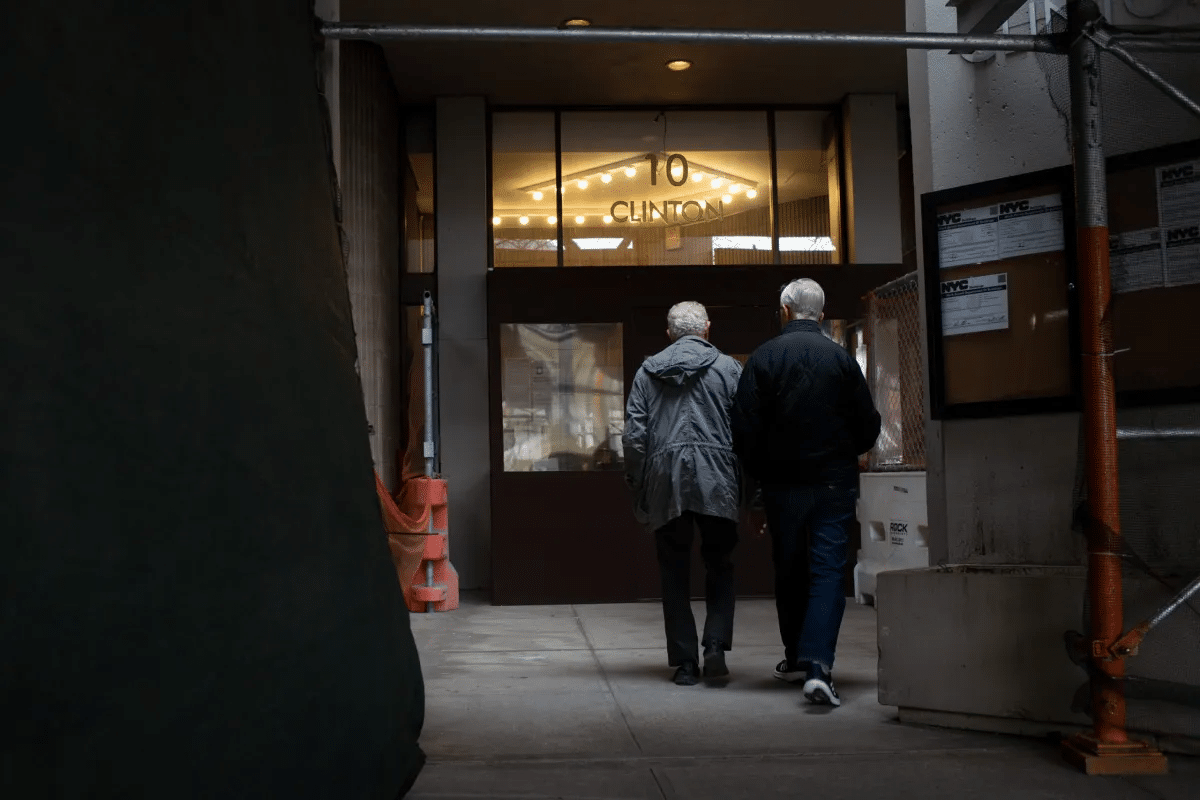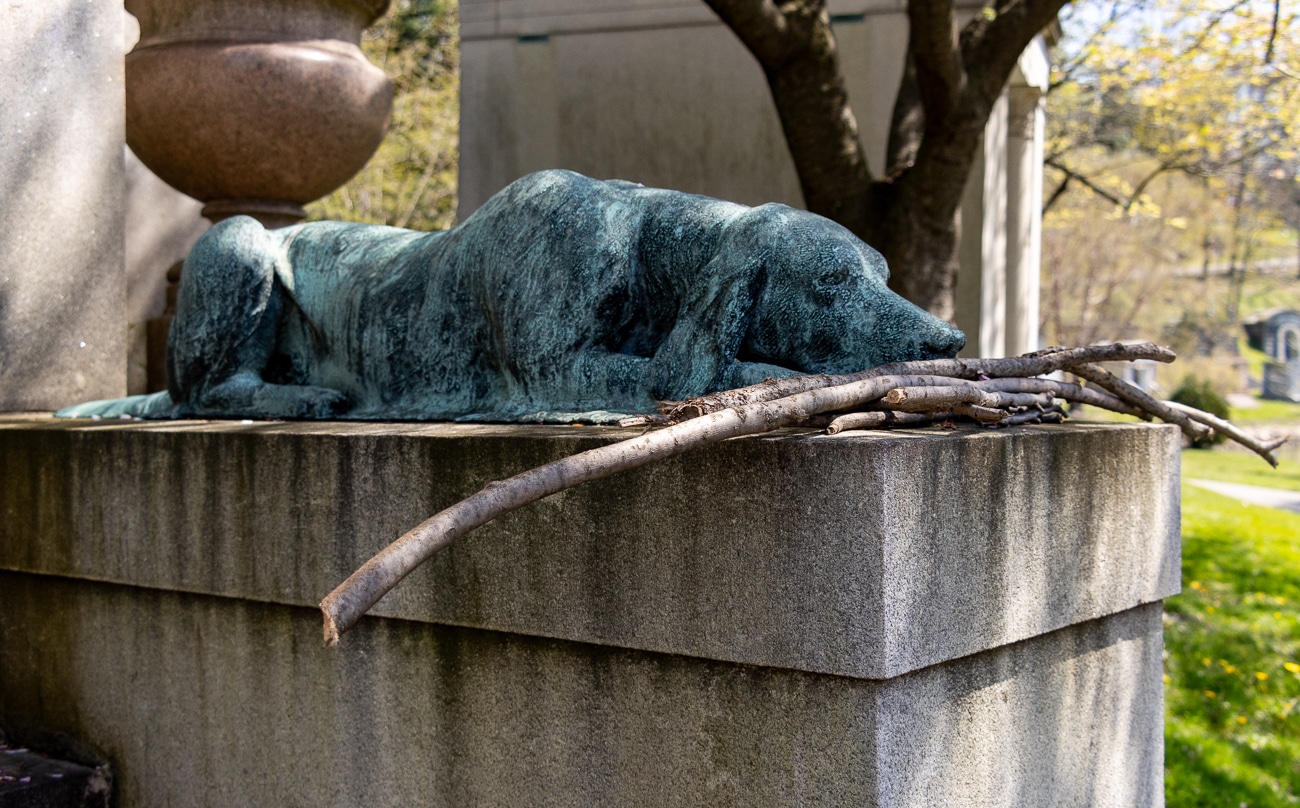Walkabout: The Three Graces of Brooklyn, Part 2
The War Between the States was well over by 1870, and Ulysses S. Grant, the victorious general of the Union Army, was now President of the United States. In Washington, Grant was finding out that it is often a lot easier to run a war than to run a country. Here in Brooklyn, a war…

The War Between the States was well over by 1870, and Ulysses S. Grant, the victorious general of the Union Army, was now President of the United States. In Washington, Grant was finding out that it is often a lot easier to run a war than to run a country. Here in Brooklyn, a war still raged, but this one was not between states, but between factions of Grant’s own political party, the Republicans, now the de facto rulers of Brooklyn. Two Civil War era generals and a civilian businessman formed a powerful triumvirate, nicknamed by the press the “Three Graces.” These three men, General James Jourdan, General Benjamin F. Tracy and Silas P. Dutcher, had wrested control of the Republican Party and the city of Brooklyn away from everyone else, and they ruled Brooklyn throughout Grant’s entire administration like a medieval fiefdom.
Part One of our story tells about these three men’s early lives and careers. By 1870, General Jourdan was Brooklyn’s police commissioner, General Tracy was the U.S. Attorney for the Eastern District, which includes Brooklyn, and Mr. Dutcher was the city’s chief tax collector. It’s unknown if these three men found in each other kindred spirits, or just a good working relationship, or all became fast friends. They could have just joined forces to defeat first their Democratic enemies, then their Republican rivals. Whatever brought them together worked, and worked really well.
The New York Times described them as follows: “They made in appearance, a picturesque group. Tracy, with his fine physique and dignified manners, his features of Roman severity, and his erect and lofty carriage, would have attracted attention anywhere. Dutcher, a giant in stature and a child in amiability, imparted a feeling of cheerfulness to his colleagues in their most despondent moments. Jourdan was the martial member of the combination. He looked the soldier born, and held and bore himself always as if at the head of his brigade.”
The Republican Party was less than twenty years old in 1870. It was organized in 1854; a spin-off of the old Whig Party, organized in opposition to the issue of slavery within the Kansas-Nebraska Act of 1854. Abraham Lincoln had been the first Republican President. Brooklyn was beginning to be a Republican town, as by the 1870s, more and more of its prominent business leaders, civic leaders, movers and shakers were Republicans. The Three Graces ruled “with an iron rod,” one Republican said much later in 1890, “and it was the best rule we ever had. We came nearer to gaining absolute control of this town at that time than ever before, or since, and nearer than, in my opinion, we will ever come again.”
You can’t have power without money, and the Three Graces had money largely because of one lucrative industry, whiskey, and one particular part of Brooklyn that brought in the bucks: the Navy Yard. Taxes on whiskey were extremely high at $2.00 a barrel. Considering an average daily wage for a laborer was around $1.70, this was indeed a lot of money. Many legitimate distillers paid the tax, but there were always those who tried to evade it, and the Three Graces were in the perfect position to stop them.
Dutcher was the tax man. He knew who was paying and who wasn’t. This information would be passed along to Jourdan, the police commissioner. He’d have them arrested, and Tracy, the District Attorney, had all the cases he could handle, able to hand down heavy fines, penalties and prison. It was perfect.
Parts of the area of Downtown between Myrtle Avenue and the Navy Yard had become one of the most dangerous parts of Brooklyn. This was before the Brooklyn Bridge and the later elevated trains. Much of this area was the neighborhood of Vinegar Hill. It was a crowded neighborhood of immigrants, mostly Irish and African Americans, as well as industries related to the Navy Yard, and sailors and seamen from all over the world. The corridor along Bridge Street to the East River was called “Irishtown.” It was also a neighborhood teeming with illegal stills.
There was a Bridge Street Ferry running at that time, and the product from the stills, called “mash,” was loaded there and taken to Manhattan, where it was sold and distributed. This went on in the dead of night, and needless to say, was not taxed in any way, unless you included the business going on between the bootleggers. This revenue stream was too rich to pass by untouched, and the Graces were going to get theirs for Brooklyn.
They placed Irishtown under martial law. Over 1,000 troops and police officers were stationed in the neighborhood every night. Each week saw several raids, with stills broken up in the street, more than a few heads busted, and arrests made. It was a dangerous time. Reporters, and even police detectives in plain clothes, were often mistaken for bootleggers by police, or recognized and loathed by local residents, and beaten up by one side or another. Journalists and detectives alike took to getting bodyguards before going into Irishtown during the raids. By the time the crackdown was over, the whiskey trade was paying taxes, and the city, and therefore the Republican Party, was flush with funds.
The trio was an effective reflection of machine politics. Attorney General Tracy was the leader. He had the most power, by means of his elected position, and was also the most effective front man because he had an extremely commanding personality and the organizational skills honed as a military leader. Dutcher and Jourdan were only steps behind him, and behind them were hundreds of functionaries, toadies and everyday party people who benefitted by their iron rule and party patronage.
Tracy was no fool. He may have loved the power, but he realized that it wouldn’t last if they were not effective civil servants. He didn’t go after anything or anyone unless he had meticulously planned out his campaign. That went for criminal investigations and prosecutions, as well as battles with the Democrats, who wanted their town back, and Republicans who weren’t on board. He also didn’t tolerate incompetence. He insisted that everyone attend to their jobs first, the Party second. He wanted the electorate to vote them back into office because they had made their decisions based on performance and success. It worked, but that doesn’t mean everyone liked it.
The Democratic Party bosses, operating their own brand of machine politics, nipped at the Republican’s heels, but they were not the real threat to the Three Graces. That threat came from their own party, and disaffected Republican bosses who were not impressed by the Graces, or their rule. They wanted their party and their power back. Like any political entity, the Graces had great success, but also some dirt under their rugs and skeletons in their closets. By 1871, the Brooklyn Eagle was already digging up the dirt, and in a very long article, called the three men “Jealous Jourdan, Duplicity Dutcher and Tricky Tracy.” The battle was on.
After Thanksgiving: A battle for power: winners, losers, and the fate of the Three Graces. (Photograph: Brooklyn in the 1870s, Brooklyn Public Library)









What's Your Take? Leave a Comment